Objective, Burma! (1945)
“Wipe them off the face of the earth!”
|
Synopsis: |
|
Genres, Themes, Actors, and Directors:
Response to Peary’s Review: He accurately labels it “one of the best war movies”, despite being “among the grimmest, considering how many soldiers on both sides are killed, and the brutality of their deaths.” He calls out “the great pacing” — with “characters who always seem to be moving” — as “characteristic of director Raoul Walsh”: … and notes that the film is “highlighted by powerful battle sequences, including a tense, climactic ‘night’ battle in which few survive.” As Peary notes, the soldiers (each a unique individual): … show the utmost professionalism on the field (they’re remarkably “well prepared and efficient”), yet they also display very real emotions and fear, becoming “frustrated, scared, and los[ing] confidence as their numbers start to diminish and rescue looks hopeless.” Flynn is especially admirable in the lead role (Peary refers to his performance as “unusually restrained” and “humble”): Less impressive is Henry Hull as an “aged war correspondent” a la Ernie Pyle, whose performance (in a role meant to simulate “our eyes” on the battlefield) comes across a tad heavy-handed. Regardless, it’s the non-stop action here that keeps us riveted — yet Peary forewarns us that it may be difficult for modern viewers to stomach the “racist propaganda” in the film, given that, as we “watch our soldiers ambushing Japanese soldiers”, it’s “like a shooting gallery”. Note: According to Time Out’s Review, England was so upset about the film’s suggestion that Americans “won the Burma Campaign single-handled” that they prevented this film from future distribution in the country until 1952. Redeeming Qualities and Moments:
Must See? Categories
Links: |
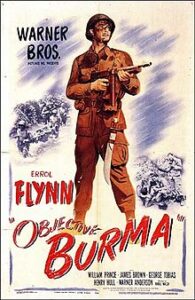
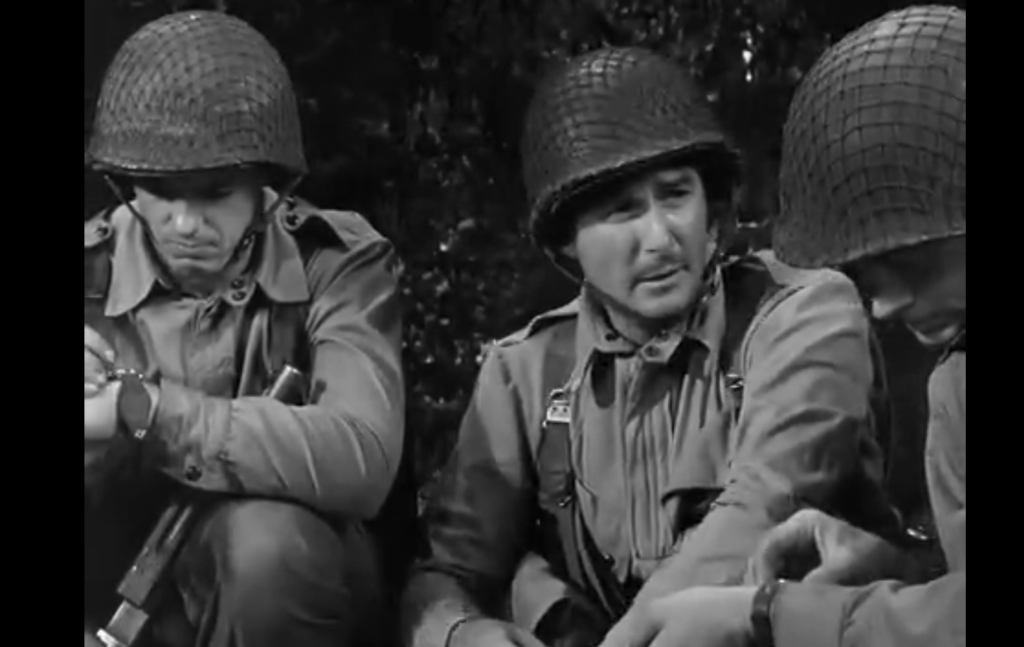
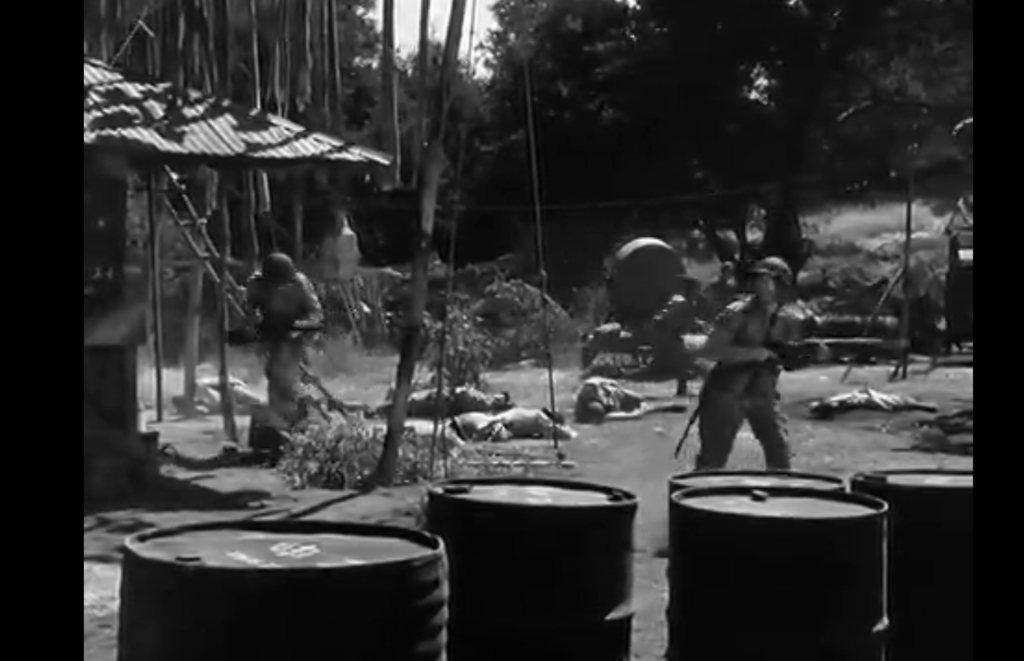
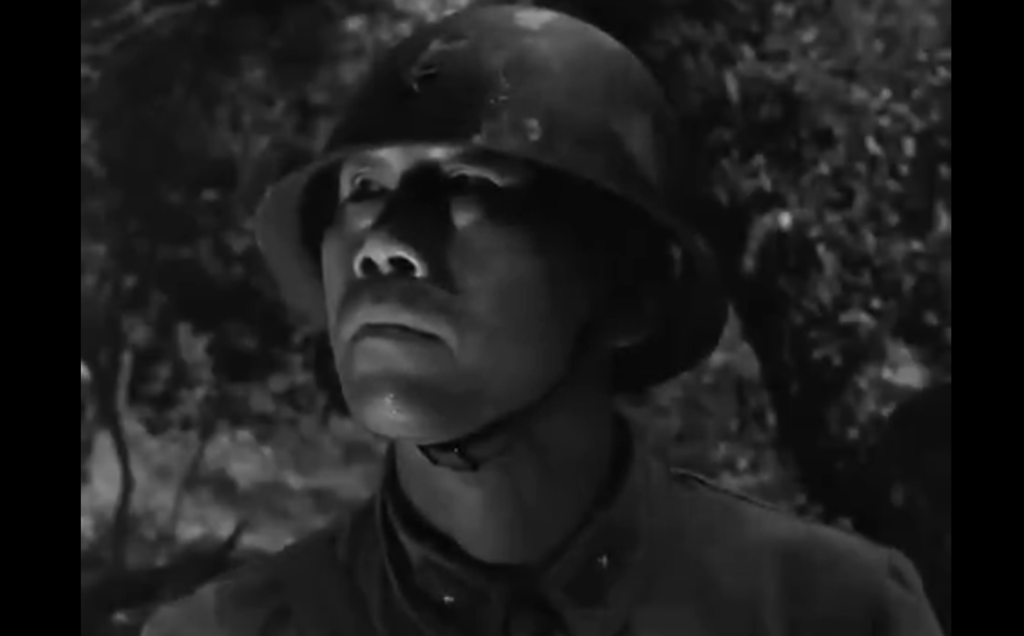
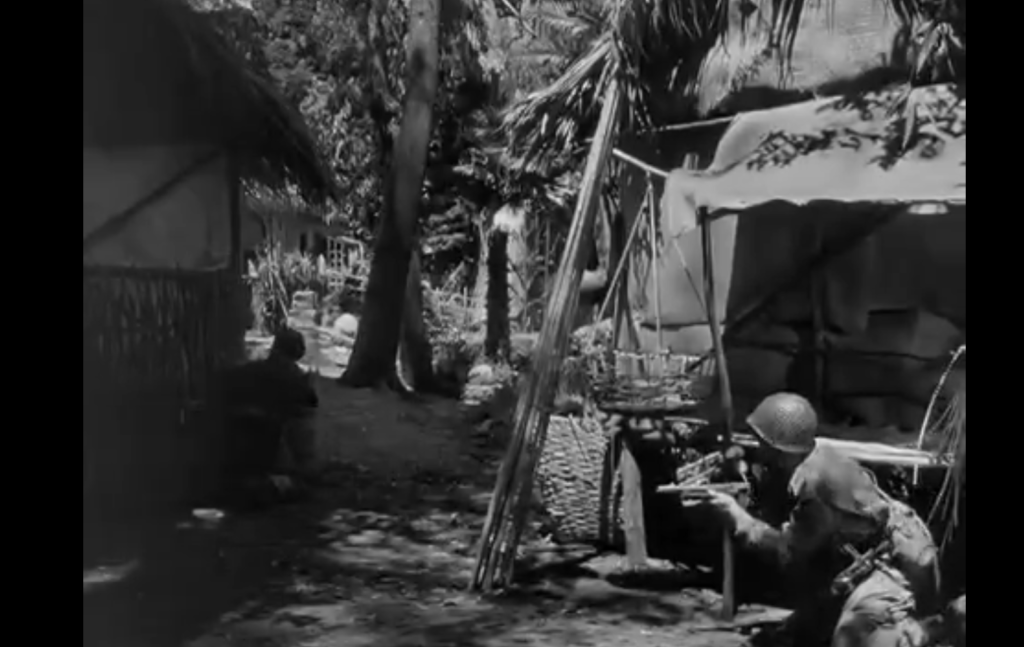
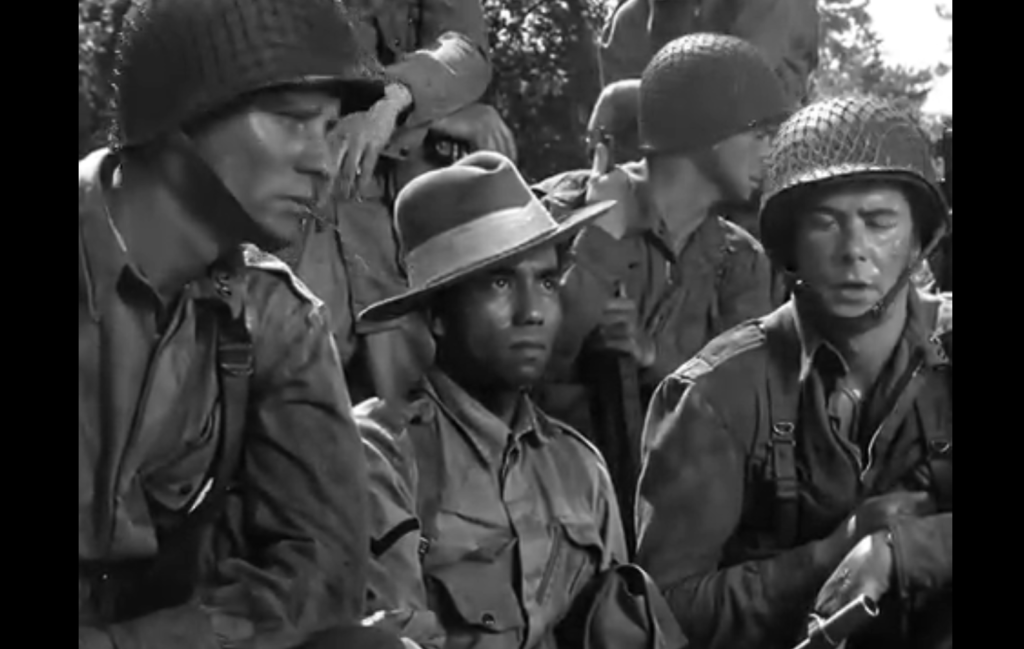
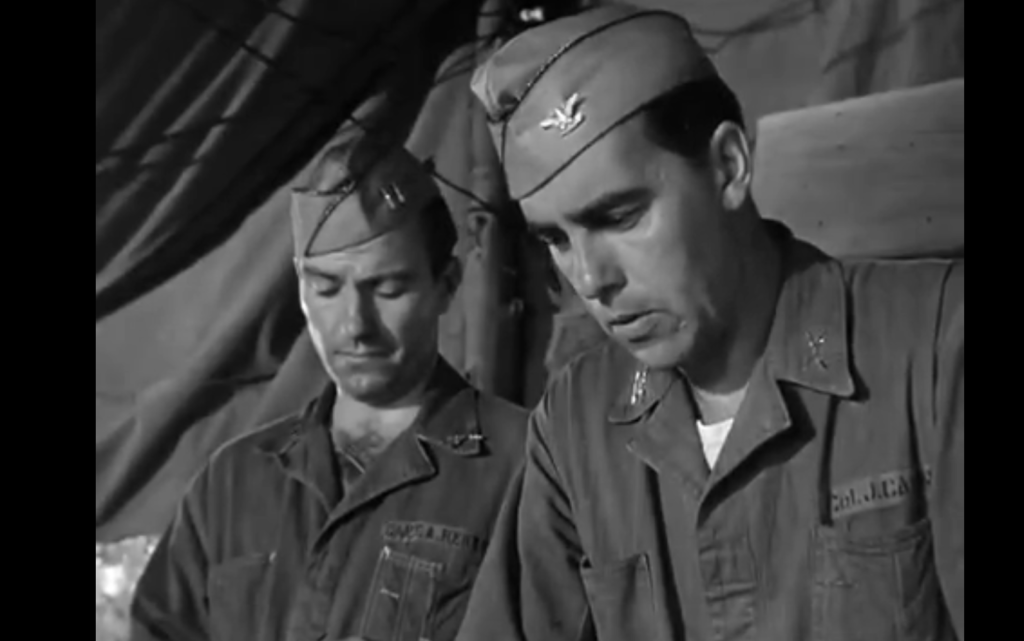
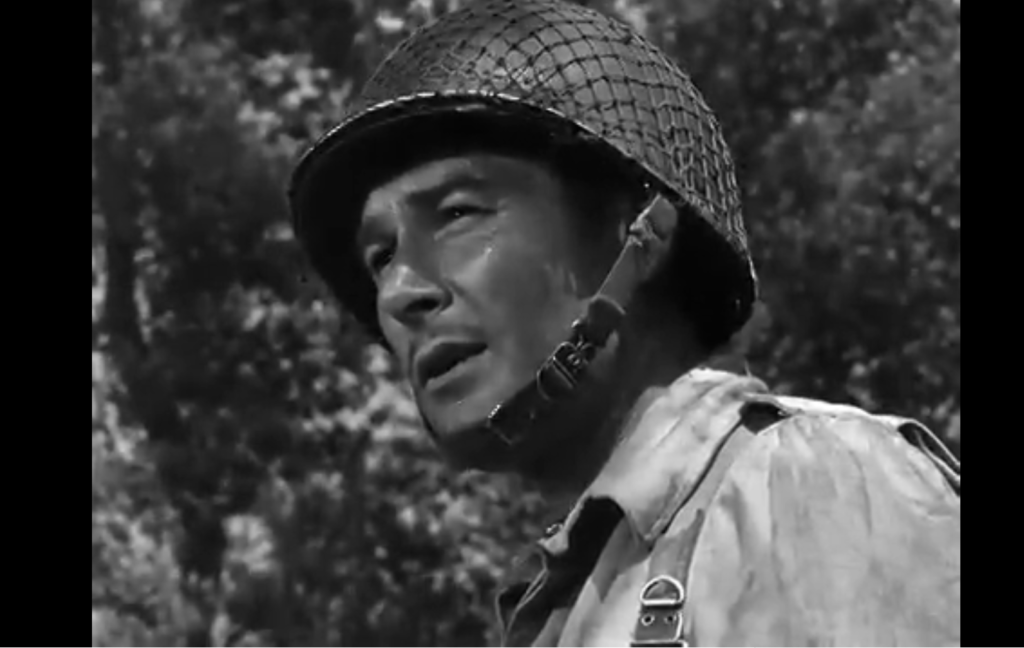
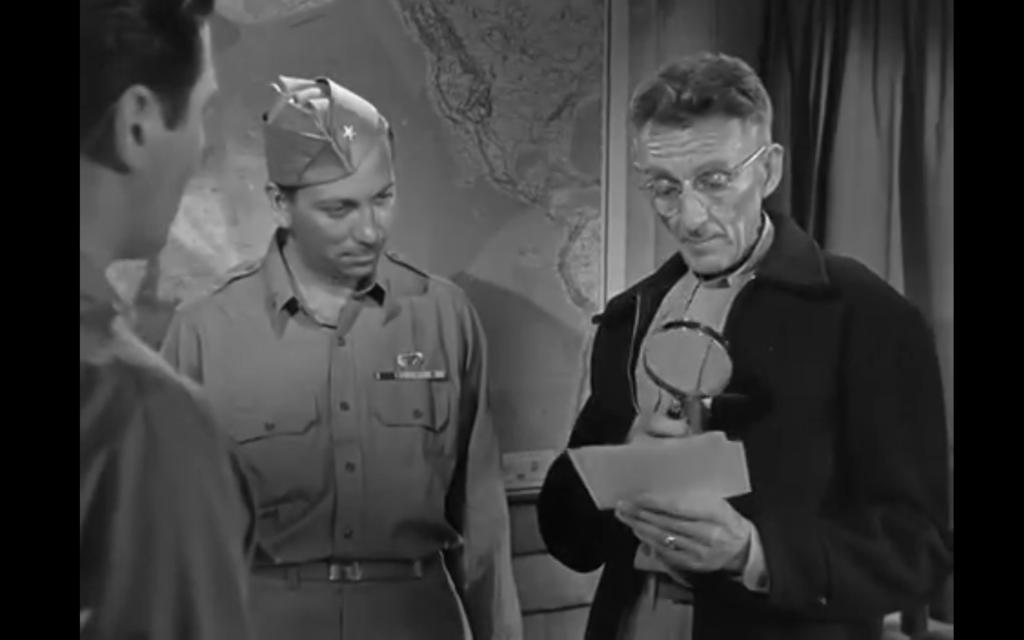
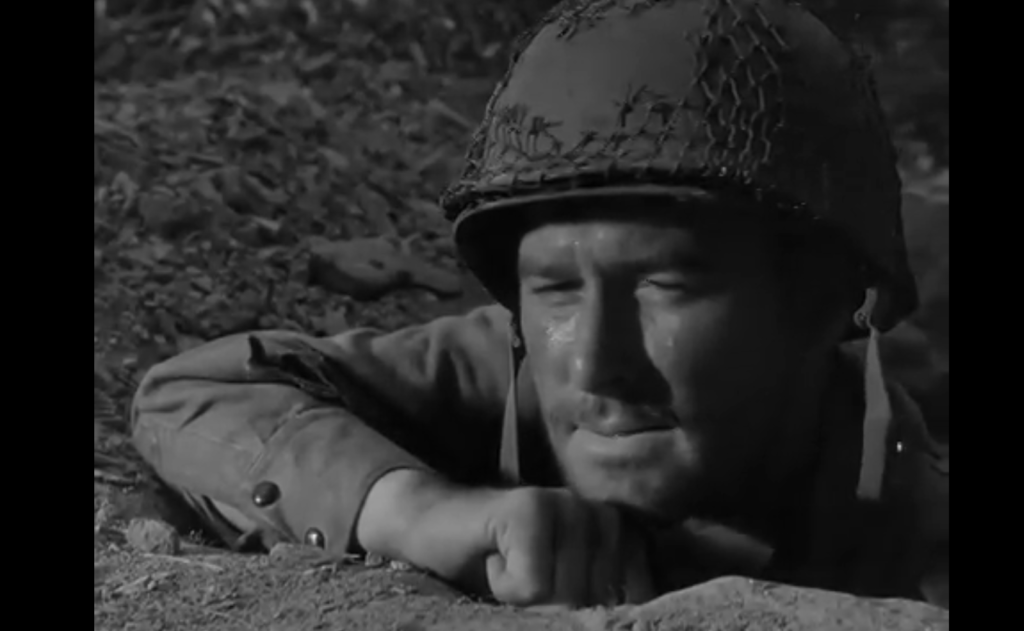
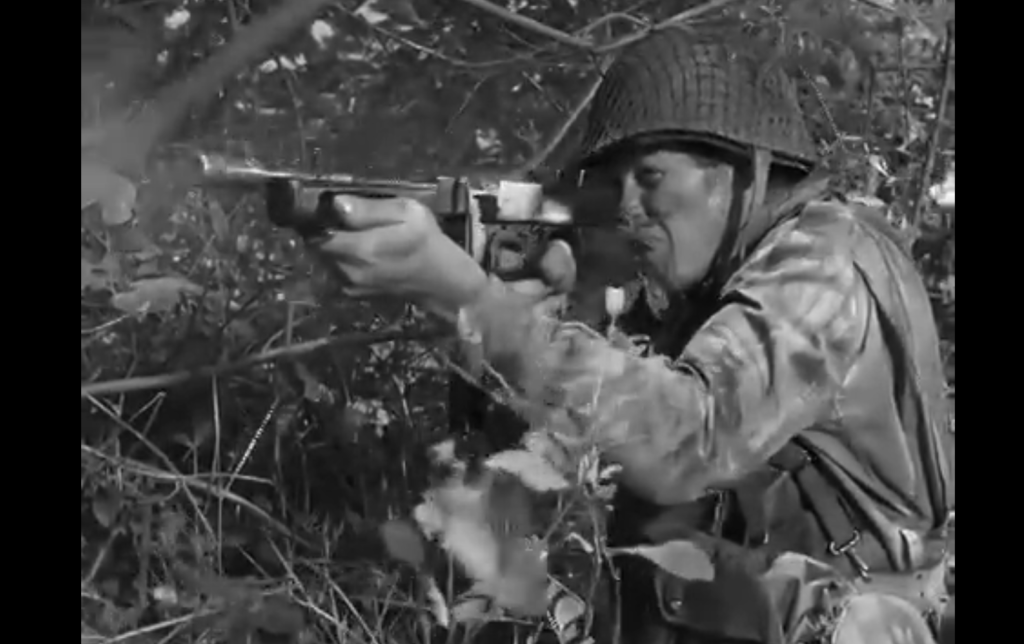
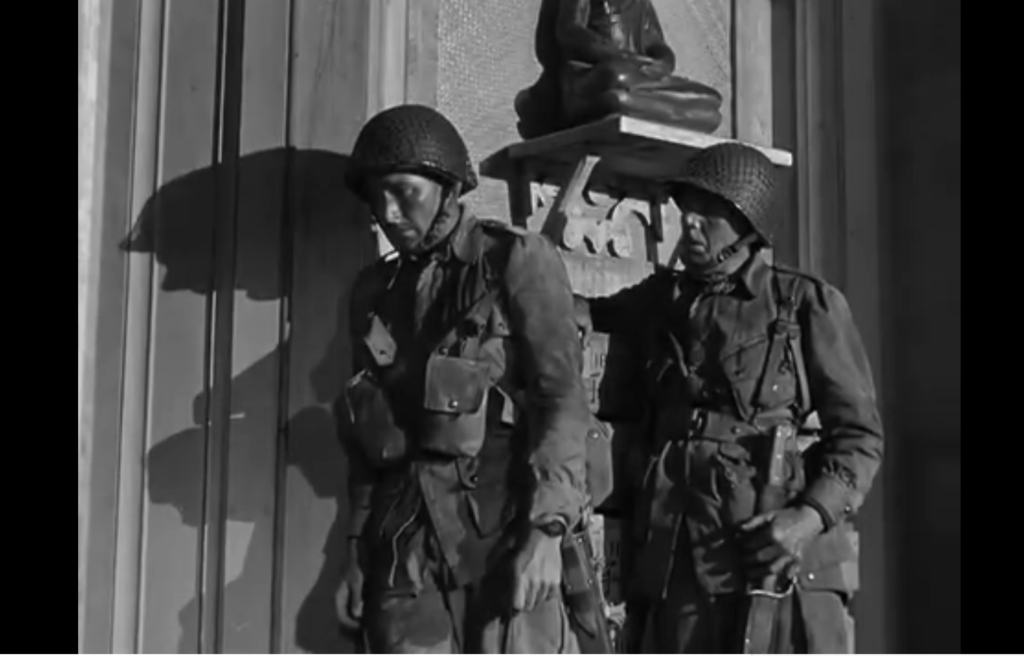
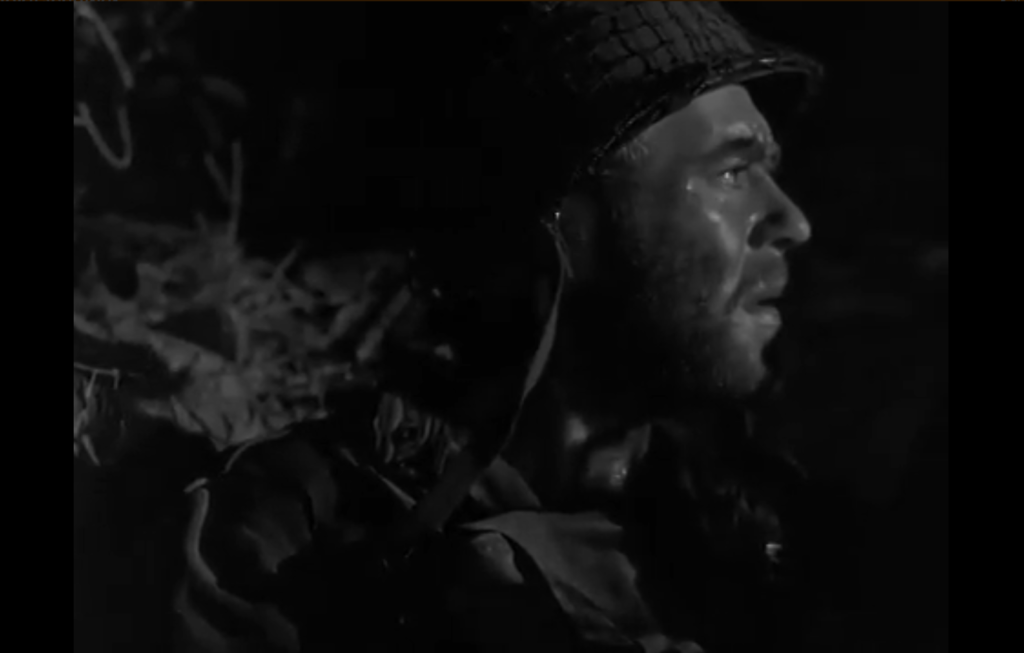
One thought on “Objective, Burma! (1945)”
A must, as one of the best WWII pics.
I looked forward to revisiting ‘OB’. I had remembered seeing it years ago and being knocked out by it. In the years following, I faced much difficulty in finding it again. (It did have a DVD release, but apparently is currently out-of-print.)
I remembered its power well. It’s a dynamic film for several reasons. Walsh’s direction is top-notch, not really missing a beat during the film’s almost 2 1/2-hr running time. In close harmony are DP James Wong Howe (dependable as always but whose work here is particularly impressive) and editor George Amy. (They say that, like a director, an editor has done his best work when you do not notice it. In the case of this pic, Amy makes one simultaneously notice and yet not notice. And that’s a good thing.)
A film is, of course, usually only as strong as its script. This one, co-written by Lester Cole and Ranald MacDougall (the latter having a rather unique filmography as writer/sometime director), is tight as a drum.
The large cast is splendid. Someone at IMDb quotes one of the actors involved; he says Walsh’s acting instructions could not have been simpler: “No Hamlets in the jungle.” Period. Holding to that simple idea worked. These guys (Flynn included, admirably) act like average guys. The actors just make what’s ordinary about their characters dramatically believable.
I won’t say the second half of the film is better than the first – it’s an expertly told story throughout – but the latter part is certainly more tangled than you’d imagine. ‘OB’ follows the details of a single mission. The mission itself goes without a hitch, so that part of the film has a slight air of routine. But things get very messy midway when the troop’s departure in victory is thwarted. From that point, ‘OB’ is more or less relentless as we begin wondering who among the men will actually get out. ‘OB’ becomes both gripping and heartbreaking.
Much like biopics of the famous or infamous, war films can be judged in accordance with the truth they are each telling (i.e., the viewer can easily read up on why ‘OB’ was, for a time, banned in Britain, etc.). Knowing more about the film’s backstory going in this time, I chose to focus on the film’s actual focus: men on a specific mission – especially one that makes them all too believably human when the unexpected meets them at every turn.